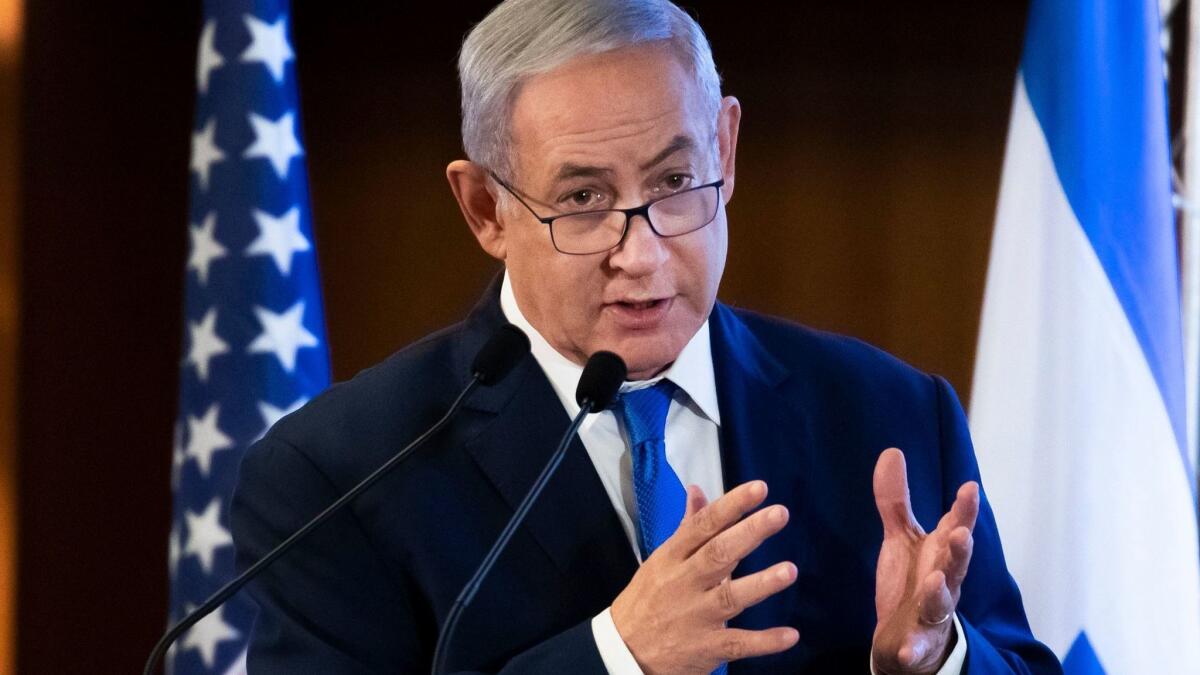Netanyahu embraces the ultra-right in effort to stop the left

- Share via
In an effort to maintain power after elections in April, Israeli Prime Minister Benjamin Netanyahu has persuaded three fringe parties of the extreme right to form an alliance by promising them two prime seats in a future Cabinet.
One of the parties, Jewish Power, believes in Jewish supremacy and is led by disciples of Meir Kahane, an American-born rabbi who won a seat in the Israeli parliament, or Knesset, before he was banned from politics in 1988 for advancing a racist agenda. He was assassinated two years later.
One Israeli television correspondent, Barak Ravid, said the move by Netanyahu was “designed to get the Israeli equivalents of David Duke into the Knesset” — a reference to the American politician and former Ku Klux Klan leader.
None of the three parties — which also include Jewish Home and National Union — are thought to have any chance on their own of winning the 3.25% of the vote needed to join the parliament. But Netanyahu hopes that together they can cross that threshold and help keep him in power.
Netanyahu presides over a fragile coalition government, and whether he continues as prime minister after the elections will depend on building a new coalition of at least 61 seats in the 120-seat Knesset. His Likud Party currently holds 30 seats.
In a statement released late Tuesday, he warned that if the right does not band together it will lose and Benny Gantz, a retired army chief who is running against Netanyahu, “will form a leftist government with the support of Arab parties.”
“Right-wing voters expect you to show responsibility and unite,” he said. “Do not disappoint them and do not endanger the Land of Israel.”
He gave the three parties a strong incentive to join forces, offering two Cabinet positions: housing and education.
Sweetening the deal, he also promised them two seats in his security Cabinet, a small forum of ministers responsible for military and strategic decisions, as well as one of the Likud’s seats in parliament.
The three parties have not announced what their alliance will be called. They were expected to do so Thursday, when all parties are required to submit their list of candidates for parliament.
The leader of the largest of the three parties, Jewish Home, is 38-year-old Bezalel Smotrich, who supports the existence of Jewish-only communities, opposes intermarriage and has declared himself a “proud homophobe.”
In a statement, Jewish Power said the arrangement would prevent “the establishment of a leftist government, God forbid.”
More to Read
Sign up for Essential California
The most important California stories and recommendations in your inbox every morning.
You may occasionally receive promotional content from the Los Angeles Times.










